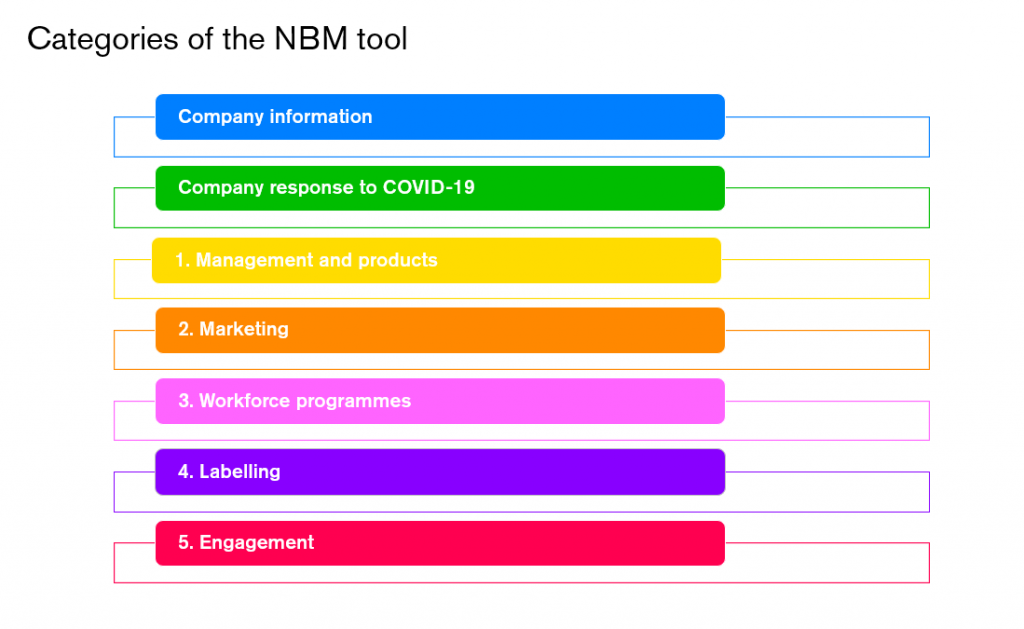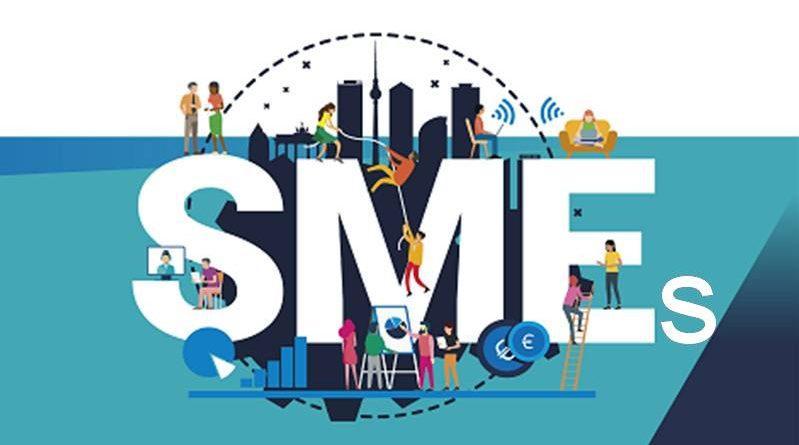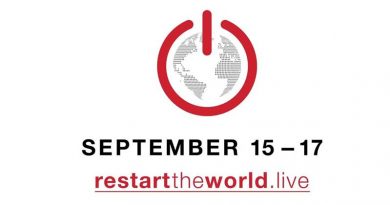A new self assessment tool for SMEs: Nutrition Business Monitor (NBM)
Micro-, small-, and medium- sized enterprises (SMEs) play a vital role in our food system and their participation in the Nutrition for Growth Year of Action is crucial.
Recent estimates of the state of global nutrition revealed that over 2 billion people suffer from insufficient diets and 3 billion people are unable to afford a healthy diet1 2 In addition, the COVID-19 pandemic has exacerbated the number of people suffering from malnutrition and hunger, with those in low- and middle-income countries (LMICs) found to be the worst affected.
The need for equitable access to affordable, nutritious foods and beverages is crucial now more than ever.
SMEs are at the frontline when it comes to supplying food to low-income groups and have the capacity to drive change in food consumption patterns at a rapid pace – e.g., SMEs are found to provide 70% of food to low-income populations in Africa.3 They therefore have enormous potential to improve the diets and health of consumers on a global scale through incorporating nutrition into their business models and practices, in turn improving the availability and accessibility of healthy nutritious foods for consumers in their local markets.
The NBM tool is a voluntary self-assessment tool that seeks to improve the nutrition performance of SMEs operating in the manufacturing sector by evaluating companies self-reported nutrition-related business practices and generating recommendations based on gaps identified. The use of the NBM tool by SMEs in SUN Countries, accompanied by capacity building or other follow-up support, also strengthens engagement and accountability for the food and beverage industry’s actions and investments to promote better nutrition, prevent malnutrition, and tackle overweight and obesity, which is a growing concern in many countries.
ATNI has developed an open-access version of the tool, available to download in the link below.The NBM toolkit
The NBM tool consists of 27 scored and unscored indicators, grouped into 5 thematic areas – products & management, marketing, workforce programs, labeling, and engagement. Depending on the answer option selected, tailored recommendations – including relevant information and resources for follow-up – are generated. The tool and subsequent recommendations aim to identify the needs of SMEs and encourage them to adopt key learnings to improve their nutrition-related business practices. Furthermore, the tool can help organizations and networks seeking to support SMEs’ contributions to public health, such as industry associations, business networks, or financial institutions. Indicators linked to national standards or guidance, embedded within the tool’s methodology, can be adjusted to national contexts.

The tool was piloted in two SUN Business Network countries – Nigeria and Bangladesh, adjusted to national context. 46 companies in total, ranging in size from micro- to relatively large, tested the tool; 23 in each country. ATNI has developed a generic open-access version of the tool that can be downloaded below. Download the MBN Toolkit . Click here for Instructions on how to download the tool
The NBM Project
To support SMEs in the fight against malnutrition, ATNI initiated a 3-year project in April 2019 (ending March 2022), to design a voluntary self-assessment tool for SMEs called the Nutrition Business Monitor (NBM) in partnership with the Global Alliance for Improved Nutrition (GAIN). The aim of the tool is to evaluate the performance of SMEs on their commitments and practices related to increasing the affordability and accessibility of nutritious foods and beverages in their respective markets. The tool also produces a document of country- specific recommendations and information for each company, which is based on gaps and areas in need of improvement identified during completion of the tool.
The NBM tool was piloted by 46 SMEs in two Scaling Up Nutrition (SUN) countries – Nigeria and Bangladesh – with the SUN Business Network (SBN).
Nigeria is the most populous country in Africa and faces multiple nutrition challenges. It has the second highest burden of stunted children in the world, with a national prevalence rate of 43% of children under five – 16.5 million children.
In Nigeria, the SBN is one of the strongest globally with 95 members and it continues to grow and develop with new activities.
Bangladesh has some of the highest rates of malnutrition in the world: more than 54% of preschool-age children are stunted, 56% are underweight, and more than 17% are wasted. The SBN in Bangladesh is currently developing its strategy. In a country where there are approximately one million SMEs, there is huge potential for impact.
This project includes a capacity building component offered to businesses who participated in the initial testing phase of the tool. A workshop was delivered in both countries, providing participants with examples of real-life case studies and the tools to design a marketing strategy and nutrition-related intervention from one of the 5 thematic areas assessed in the NBM tool. The workshop also provided a platform for SMEs to engage in interactive discussions, share information, receive support from a nutritionist, and network. Download the MBN Toolkit . Click here for Instructions on how to download the tool
SOURCE: Accesstonutrition.org




